20 Protest Songs That Still Resonate Today
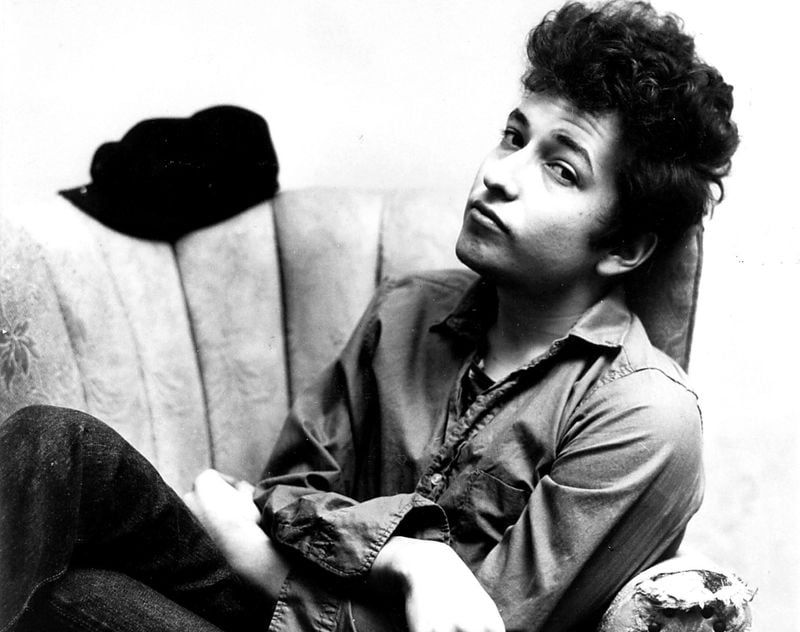
Music has always been a powerful force for change, giving voice to the silenced and rallying movements around the world. Protest songs, in particular, have long reflected the heartbeat of social justice struggles—touching on civil rights, war, inequality, and cultural resistance. These songs don’t just belong to history books; they echo across generations, still stirring hearts and minds today. Whether written decades ago or in recent years, these tracks continue to inspire and challenge us. Here are 20 protest songs that haven’t lost their fire—and still speak volumes in today’s world.
1. Bob Dylan – “The Times They Are A-Changin’” (1964)
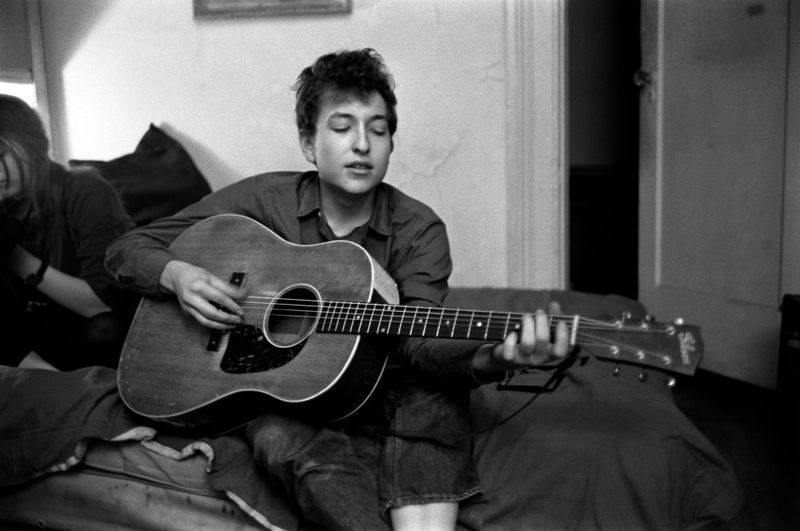
Written during a time of civil upheaval, Dylan’s lyrics became the unofficial soundtrack of the 1960s protest movements. The song doesn’t shout—it warns, pleads, and challenges people to embrace change before it overtakes them.
Its genius lies in its universal message. From civil rights to generational divides, “The Times They Are A-Changin’” remains an anthem for those who dare to challenge the status quo. Politicians, parents, and protestors have all found relevance in its lines—proof that true protest music transcends time.
2. Billie Holiday – “Strange Fruit” (1939)
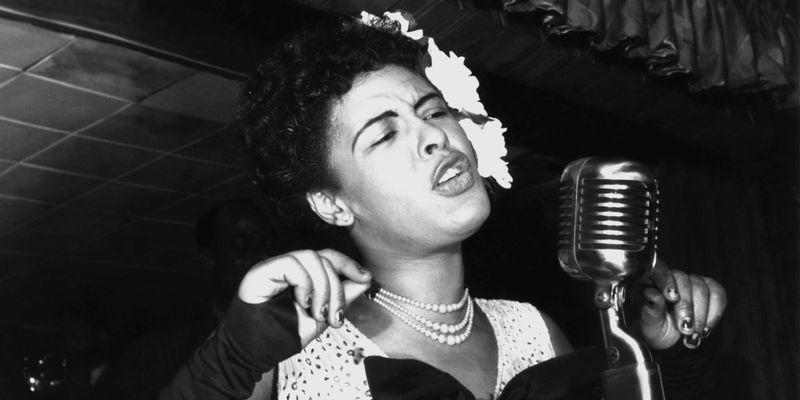
Originally a poem about lynching in the American South, “Strange Fruit” paints a harrowing picture of racial violence. Holiday’s haunting delivery makes the listener feel the deep sorrow and injustice embedded in every word.
This wasn’t just a song—it was a form of defiance. Holiday faced threats and censorship for performing it, yet she persisted. Today, its chilling imagery continues to confront listeners with the brutal truth of America’s past—and the lingering wounds that have yet to fully heal.
3. Marvin Gaye – “What’s Going On” (1971)
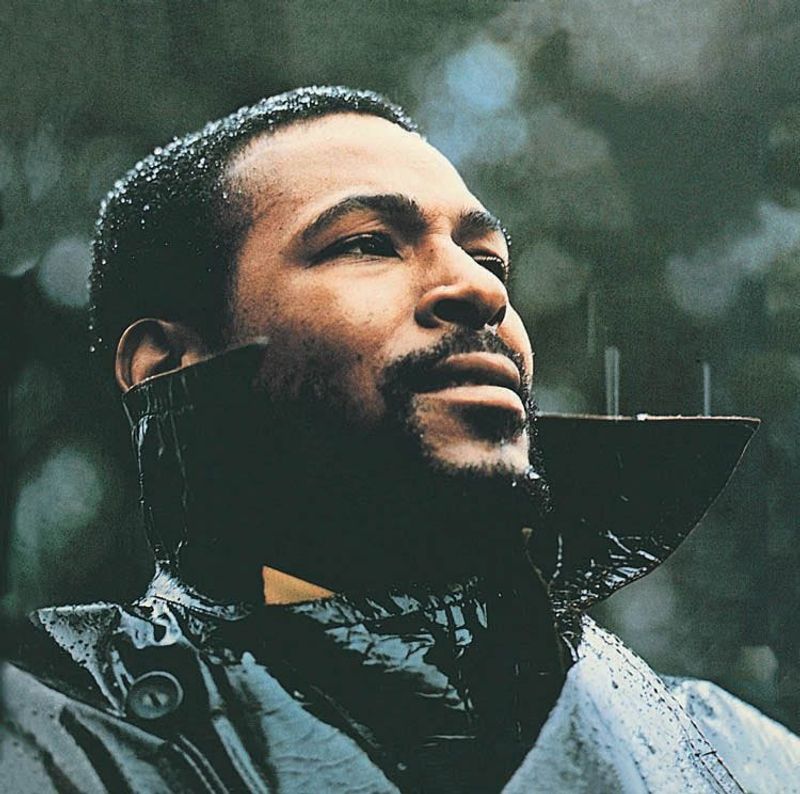
The title may sound like a simple question, but Gaye’s lyrics dig deep into issues of war, police brutality, and ecological crisis. It marked a radical departure from his Motown roots and a leap into activism through soul.
“What’s Going On” stands out for its gentle tone paired with hard truths. Gaye’s soft voice and sweeping orchestration draw listeners in—only to deliver a powerful critique of a world in turmoil. It’s a timeless reminder that asking the right questions can be revolutionary.
4. Rage Against the Machine – “Killing in the Name” (1992)
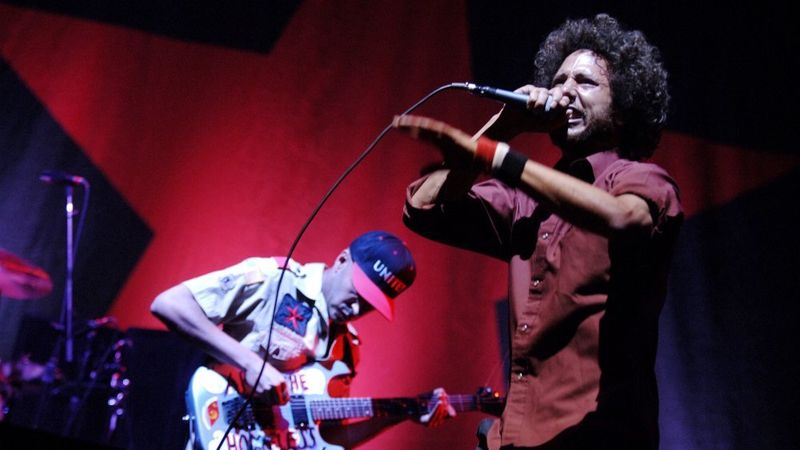
Raw anger and electrifying guitars power this explosive critique of institutional racism and police violence. The iconic refrain, “Some of those that work forces / are the same that burn crosses,” remains one of the most direct calls-out in rock history.
RATM’s blend of metal and political fury makes this song a staple at protests even today. It refuses to be polite or diplomatic—and that’s exactly what gives it staying power in a world where injustice still rages.
5. Public Enemy – “Fight the Power” (1989)
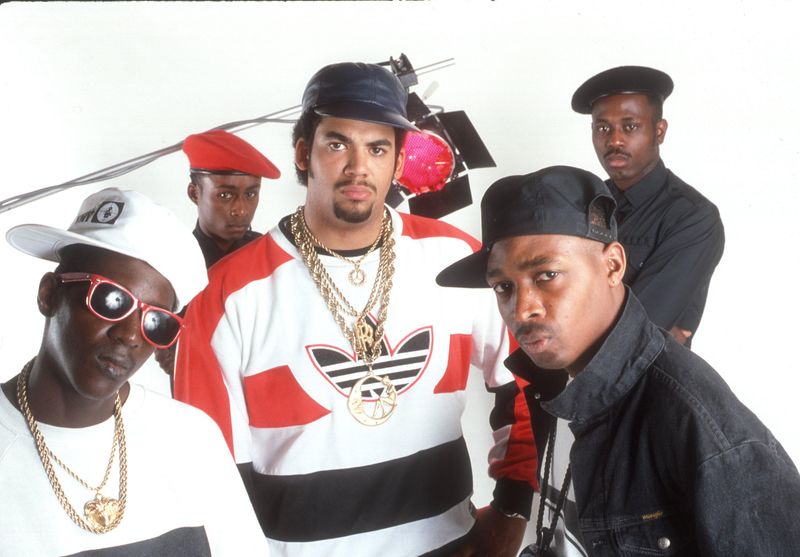
With its booming beats and razor-sharp lyrics, “Fight the Power” became the voice of urban resistance in the late ’80s. It critiques racism, media bias, and cultural icons all in one track.
Chuck D’s commanding voice, backed by The Bomb Squad’s chaotic production, makes this song impossible to ignore. Decades later, it’s still used in marches, rallies, and movies as a rallying cry against systemic oppression—and a reminder that speaking truth to power is always relevant.
6. Tracy Chapman – “Talkin’ ’Bout a Revolution” (1988)
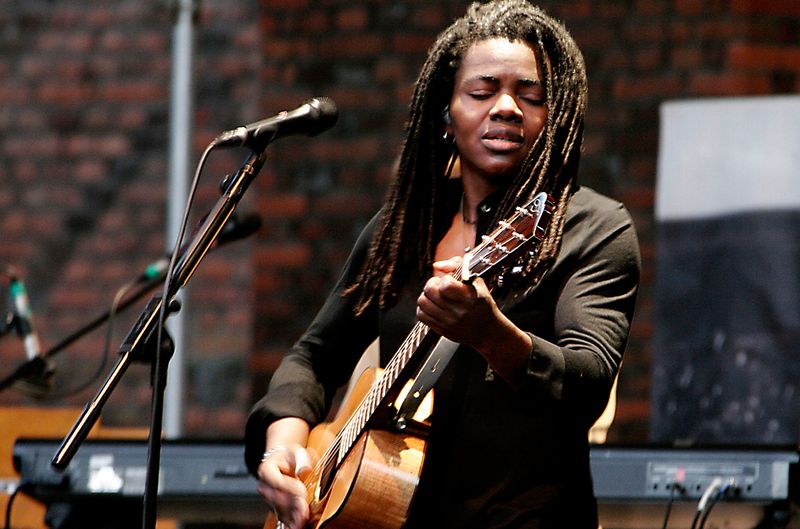
There’s a quiet power in Chapman’s acoustic protest. Unlike other loud anthems, this song whispers truths about poverty, inequality, and the working class—making it even more impactful.
Her soft voice doesn’t mask the urgency of her message. Chapman tells the story of the marginalized with empathy and hope. It’s a song that speaks for those waiting in welfare lines and dreaming of justice—and its resonance has only grown stronger in the age of economic disparity.
7. Kendrick Lamar – “Alright” (2015)
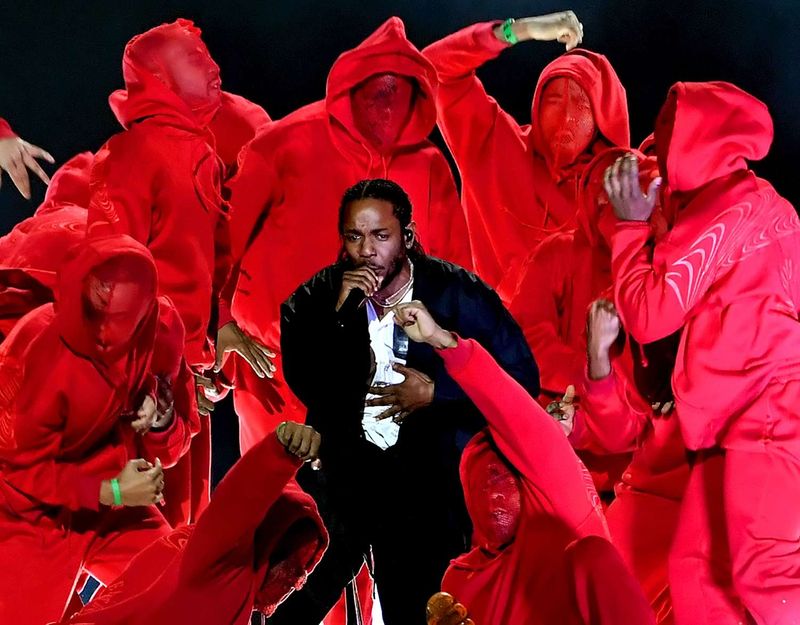
Emerging from the unrest following police shootings of unarmed Black men, “Alright” became a spiritual balm for a generation. Its chorus—“We gon’ be alright”—was chanted at Black Lives Matter protests across the country.
Lamar’s verses mix personal pain with political frustration. Yet despite the anger, there’s hope and resilience in his words. “Alright” doesn’t deny hardship—it transcends it. That’s why it continues to serve as both comfort and call to action for communities facing injustice.
8. Sam Cooke – “A Change Is Gonna Come” (1964)
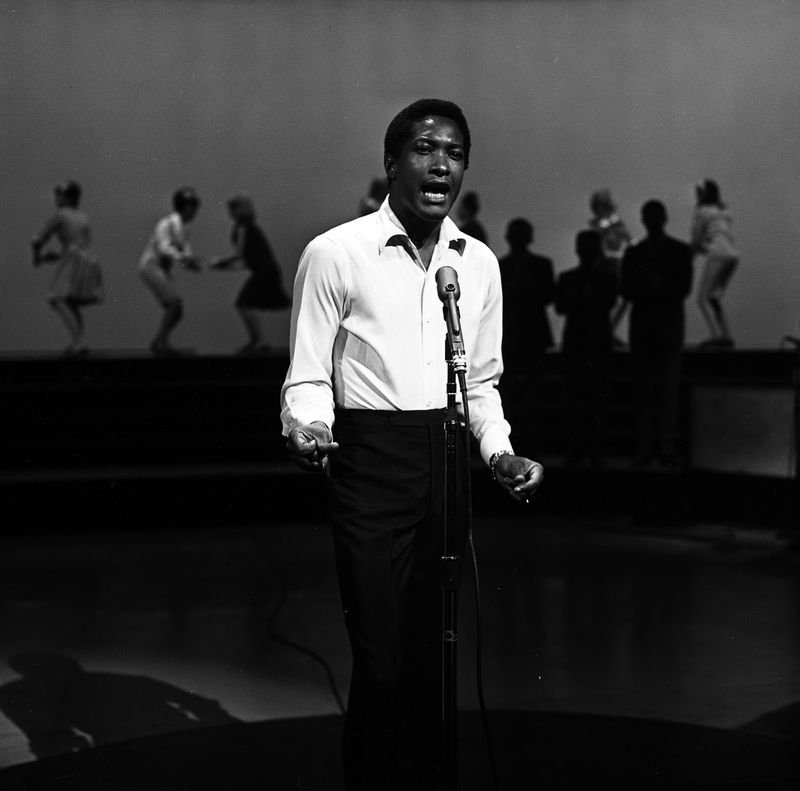
Sam Cooke’s “A Change Is Gonna Come” is a timeless classic that speaks to the struggle for civil rights. Inspired by Cooke’s own experiences with racism, the song’s poignant lyrics express a longing for equality and justice.
Cooke’s smooth vocals convey a powerful mix of sorrow and hope, resonating with listeners across generations. This iconic anthem continues to inspire those who fight for change, reminding us that progress is possible. Its enduring legacy as a beacon of hope in the face of adversity remains unshaken.
9. Nina Simone – “Mississippi Goddam” (1964)
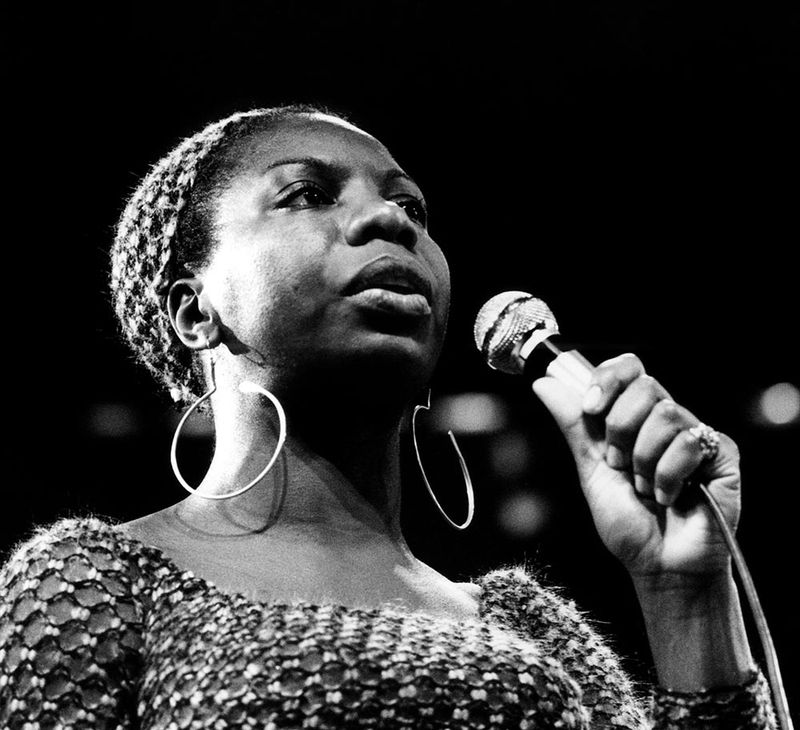
Outraged by the murders of Medgar Evers and the Birmingham Four, Simone penned this furious song in a matter of hours. Its jazzy piano contrasts starkly with its seething lyrics.
She doesn’t hold back. The song lashes out at Southern racism and Northern complacency alike. Simone risked her career to perform it—but she refused to stay silent. Today, “Mississippi Goddam” remains a fearless example of how protest music can be both beautiful and brutally honest.
10. Hozier – “Nina Cried Power” (2018)

This tribute to protest musicians—especially Nina Simone—combines gospel energy with a modern edge. Hozier name-drops artists who used music as resistance, creating a song that’s both homage and rallying cry.
Featuring the legendary Mavis Staples, the track reminds us that activism through art has always existed. It’s not just a history lesson—it’s an invitation to continue the fight. “Nina Cried Power” energizes listeners to carry the torch forward with every verse.
11. Bruce Springsteen – “Born in the U.S.A.” (1984)
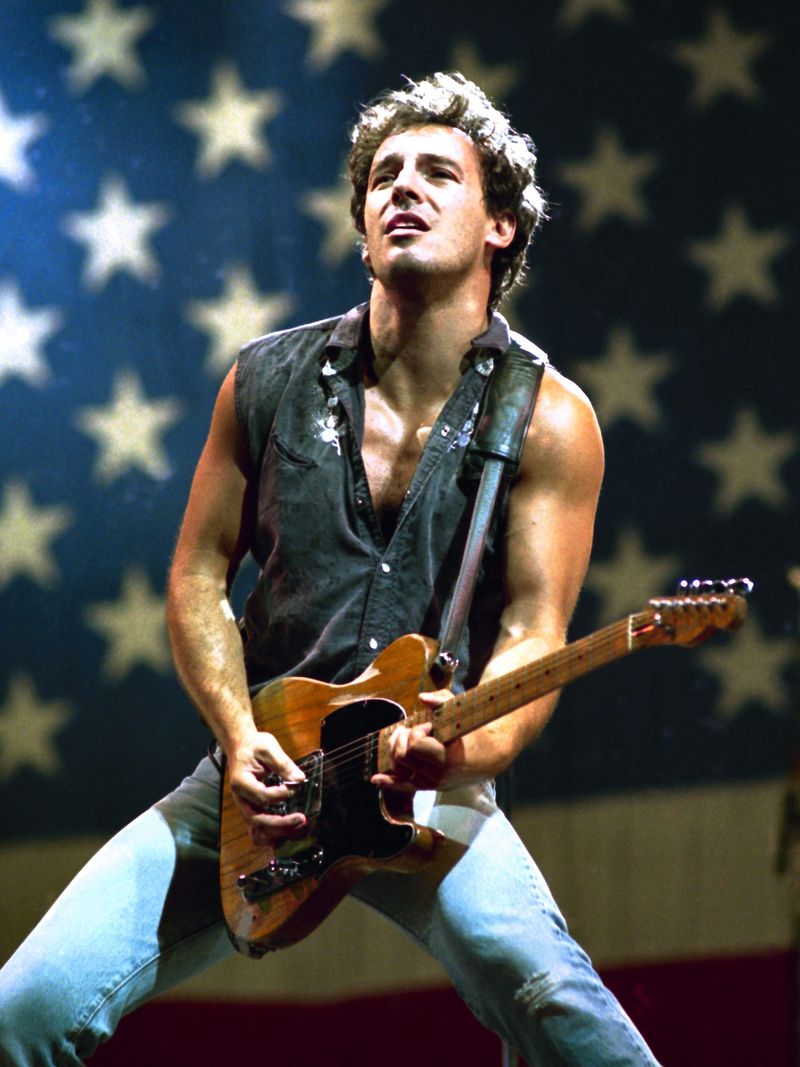
Often misinterpreted as a patriotic anthem, this song actually criticizes the treatment of Vietnam veterans and the working class. Springsteen’s voice is gritty, and the lyrics tell a story of disillusionment and neglect.
Its bombastic chorus masks the pain in its verses. That contrast has made it a misunderstood but essential protest song. Even decades later, “Born in the U.S.A.” challenges Americans to look deeper than surface-level patriotism and confront the nation’s broken promises.
12. Janelle Monáe – “Hell You Talmbout” (2015)
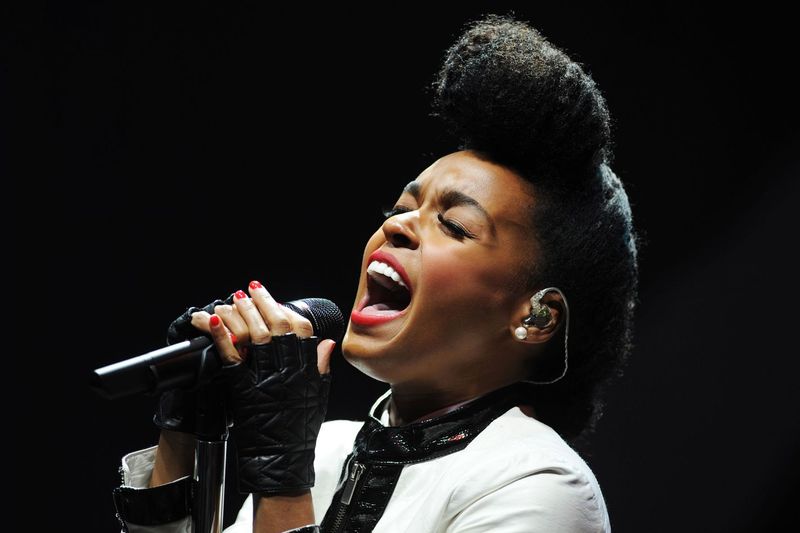
Using only drums and voice, Monáe leads a chant of names—those of Black Americans killed by police violence. Each name is shouted with urgency and sorrow, demanding the world not forget.
It’s not a traditional song—it’s a memorial and a protest rolled into one. “Say his name!” “Say her name!” The repetition becomes a demand for justice. Monáe’s work honors the dead while calling for action from the living. It’s as immediate as protest music gets.
13. Woody Guthrie – “This Land Is Your Land” (1940, released 1951)
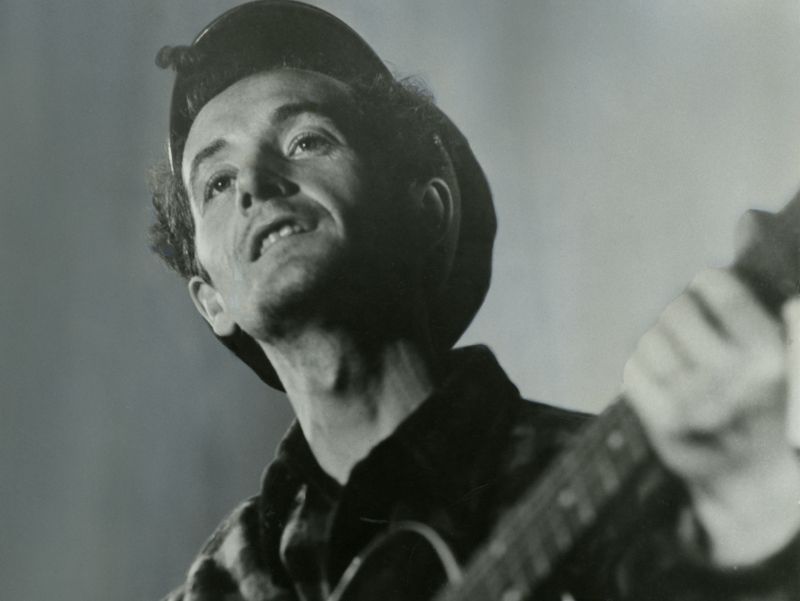
Though often sung in schools, the original version of this folk song contains verses questioning capitalism and land ownership. Guthrie wrote it as a direct rebuttal to “God Bless America.”
Its melody is simple, but its message is radical. Guthrie wanted to remind Americans that the land belongs to everyone—not just the wealthy or powerful. Even today, its lyrics resonate with movements fighting for housing, land rights, and economic justice.
14. Childish Gambino – “This Is America” (2018)
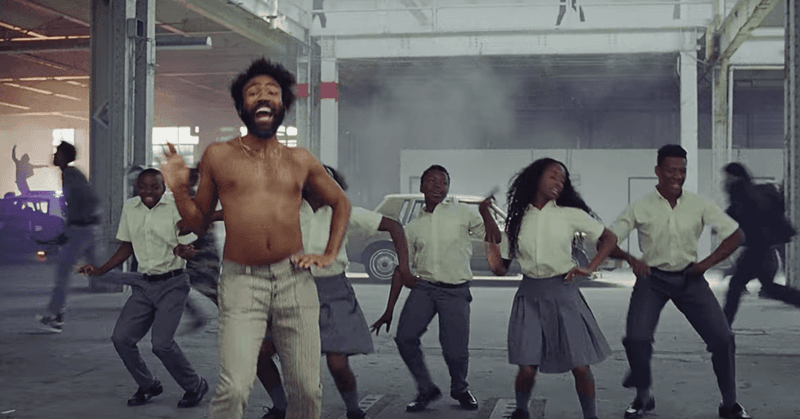
Blending trap beats with shocking visual storytelling, this song exposes the contradictions of American culture—especially around race, gun violence, and entertainment.
Gambino’s lyrics are sparse but loaded with meaning. The track forces listeners to confront harsh truths behind America’s facade. Accompanied by a provocative music video, it stirred global conversation. “This Is America” doesn’t offer solutions—it holds up a mirror. And what we see is often uncomfortable but necessary.
15. The Cranberries – “Zombie” (1994)
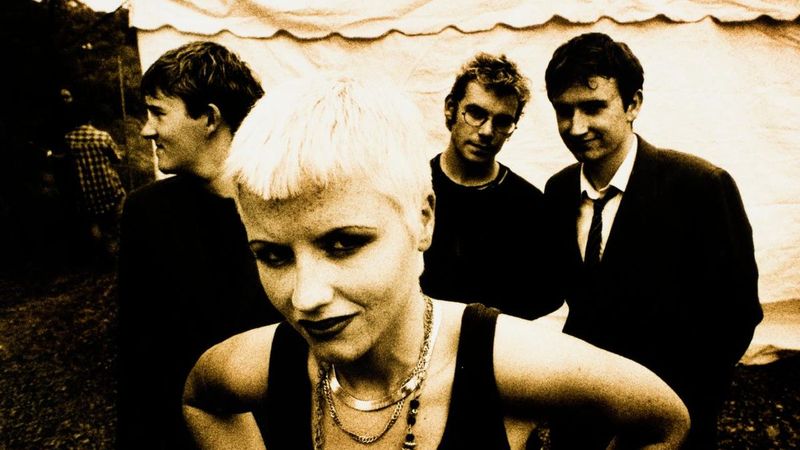
Written in response to IRA bombings in England, this grunge ballad mourns the loss of innocent lives in political conflict. Dolores O’Riordan’s raw vocals give the song its emotional power.
Rather than taking sides, the lyrics condemn violence itself. “Zombie” speaks to the pain of children caught in the crossfire of ideologies. Its message is sadly still relevant in a world rife with war and extremism. Protest music, after all, often pleads for peace.
16. Joan Baez – “We Shall Overcome” (Live versions)

Often performed by civil rights marchers, this traditional spiritual became a signature song of hope and solidarity. Baez helped elevate it to iconic status through her emotional performances.
Her voice is clear and unwavering, even when singing in the face of hate. “We Shall Overcome” isn’t just a lyric—it’s a promise. Baez’s renditions bring out the strength and dignity behind those words, reminding us that protest is powered by perseverance.
17. Green Day – “American Idiot” (2004)
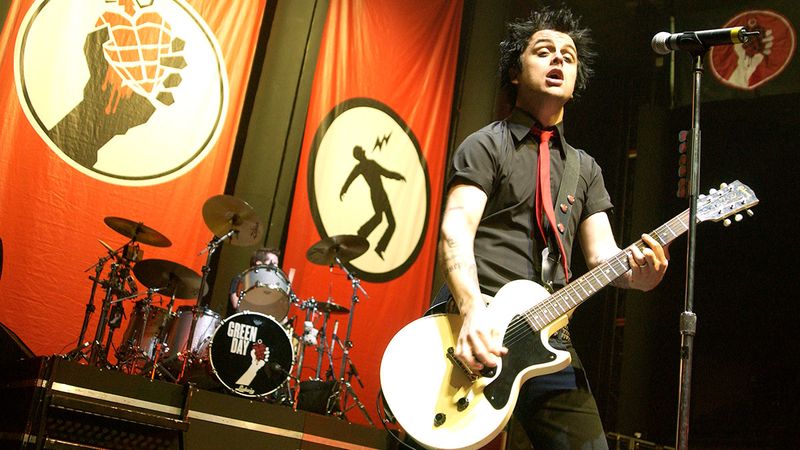
Fueled by post-9/11 disillusionment and anti-war sentiment, this punk rock anthem lashes out at media manipulation and blind patriotism. It’s loud, sarcastic, and unapologetically political.
Billie Joe Armstrong channels frustration into every note. “American Idiot” questions conformity and challenges listeners to think critically. It captured the voice of a generation skeptical of authority—and in today’s era of misinformation, its relevance has only grown.
18. Solange – “Don’t Touch My Hair” (2016)

Personal and political, this song explores Black identity and bodily autonomy. Solange delivers her message with grace, making a clear point: respect boundaries—physical, cultural, emotional.
It’s a quiet protest against everyday microaggressions. Her lyrics reclaim dignity and space, while the smooth production emphasizes her control over her narrative. “Don’t Touch My Hair” isn’t just about hair—it’s about owning one’s power in a world that often tries to strip it away.
19. The Clash – “Know Your Rights” (1982)
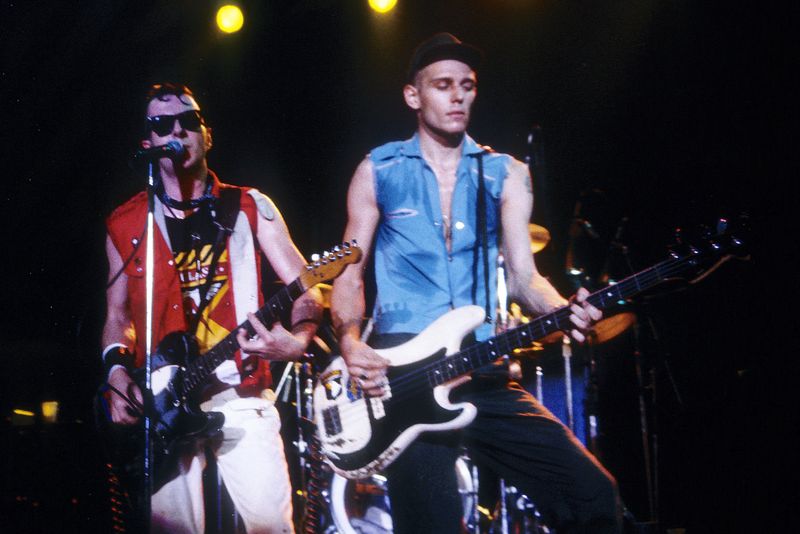
In classic punk fashion, this song delivers a sarcastic rundown of the so-called “rights” people have under oppressive systems. Joe Strummer’s snarling delivery makes each line hit like a punch.
It’s both a critique and a warning. “Know Your Rights” mocks the illusion of freedom when it’s not equitably distributed. Decades later, the song still resonates in a world where rights are frequently denied in practice, if not in law
20. Buffy Sainte-Marie – “My Country ‘Tis of Thy People You’re Dying” (1966)
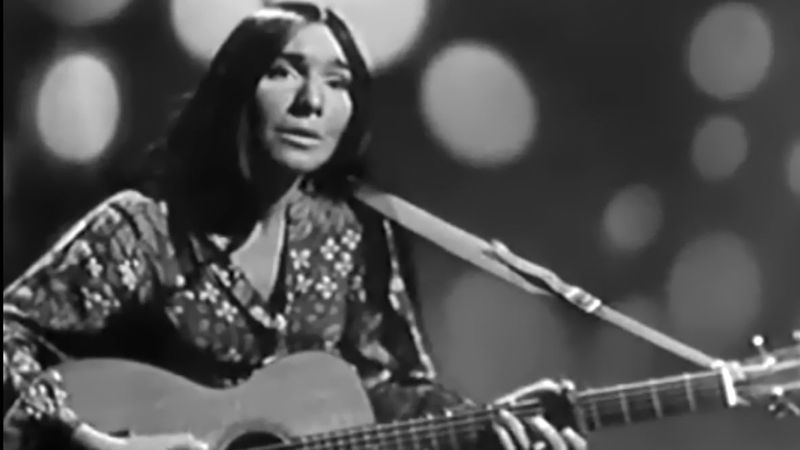
A stark and poetic indictment of colonialism and genocide, this song gives voice to Indigenous pain in a way few had done before. Sainte-Marie’s words are razor-sharp, cutting through patriotic myths.
Her delivery is mournful yet commanding. This isn’t a song of hope—it’s a reckoning. It calls out the erasure of Native history and challenges listeners to face uncomfortable truths. Today, it’s more than a protest song—it’s a historical document of resistance.

Comments
Loading…